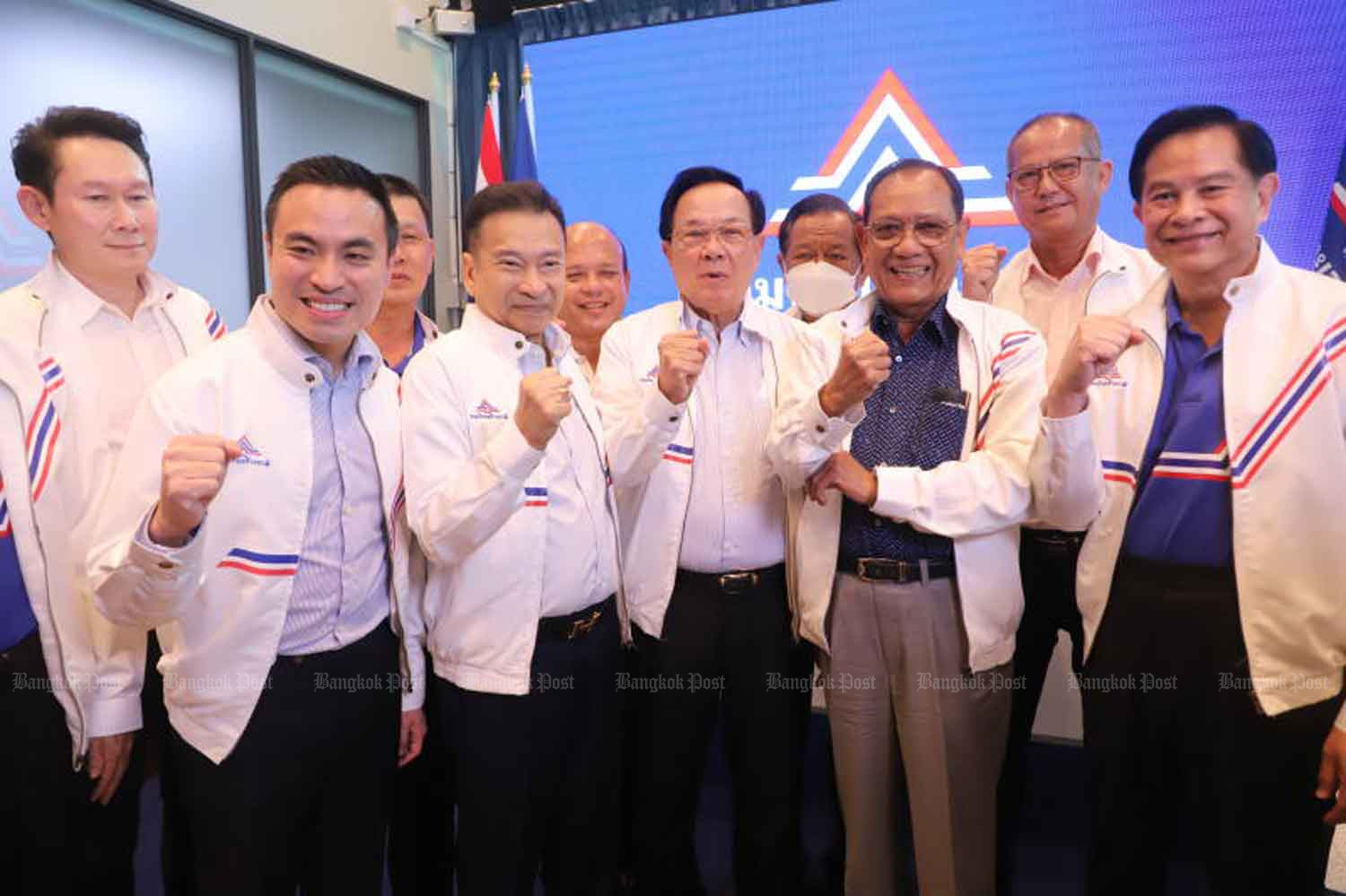
The Election Commission (EC) has warned the leader of the United Thai Nation Party (UTN), Pirapan Salirathavibhaga, over alleged comments made by a key party member about the monarchy.
The EC's warning follows a campaign speech made by UTN's chief adviser Trairong Suwannakhiri in Nakhon Ratchasima on Feb 25, where he is accused of making an improper reference to the monarchy.
The notice is a response to political activist Srisuwan Janya petitioning the EC to look into whether Mr Trairong violated such laws over his remarks about the institution of the monarchy.
The EC warned Mr Pirapan to ensure Mr Trairong complies with election laws and regulations involving election campaigns.
In the letter to the UTN leader, EC secretary-general Sawang Boonmee said the commission found Mr Trairong could have breached the election campaign rules that state political parties and poll candidates are prohibited from embroiling the monarchy in election campaigns.
Mr Sawang has also sent a letter warning party leaders and executives to ensure their members strictly comply with election laws and the EC's campaign rules, especially regarding the monarchy.
Party executives are also required to order their members accused of violating the rules to cease actions and introduce measures to deter similar actions upon being notified by the EC of their candidates' improper conduct. Party leaders and executives who fail to follow this obligation face being removed from their posts and banned from holding posts in any political party for 20 years.
Somchai Srisutthiyakorn, a former election commissioner and now the Seri Ruam Thai Party's policy steering chairman, on Monday slammed the EC secretary-general for just issuing a warning to the UTN leader over Mr Trairong's conduct.
He insisted that the issue is not considered over because Mr Trairong's conduct could result in a party dissolution under Section 92(2) of the political party law.
The section allows the EC to propose the dissolution of a party to the Constitutional Court if it has obtained enough evidence that the party has committed an act deemed hostile to a democratic regime with the King as the head of state.
He said the EC's secretary-general has two options -- accept or reject the petition. If the petition is accepted, the EC secretary-general is obliged to gather facts and forward the case to the EC for a ruling in 30 days.
"If the EC rules against the accused, the case is filed with the Constitutional Court seeking a party dissolution," Mr Somchai said.







